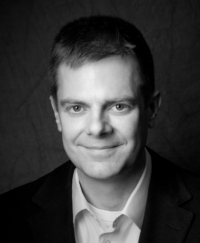Medical progress: Determination, Collaboration, Innovation.

On January 12, we were joined by James Crowe, MD, Director of the Vaccine Center and Ann Scott Carell Professor of Pediatrics, Pathology, Microbiology & Immunology at Vanderbilt University Medical Center and winner of Research!America’s 2023 Building the Foundation Award. Dr. Crowe shed light on the sustained, multi-sector efforts that drove progress against COVID-19, and challenged the audience to revisit assumptions about present and potential paths to medical progress. Some of his insights:
On how to capture the momentum from COVID and apply it to other major threats:
“… instead of getting faster and faster response systems, we’re always scrambling. Why don’t we think and just prepare ahead of time? And when something happens, we say, ‘Yeah, we already have the solution for that. We’re good.’ And snuff it out when it’s small. So, we’ve started a program called Ahead 100, which tries to make antibody solutions not just for COVID or Ebola, but for the 100 most likely causes of future epidemics, and shift from panic to preparedness.”
On the actual and potential similarities between force readiness and medical discovery::
“… we have built military systems that prevent war because of the strength and preparedness of the United Sates. In military systems, there are so many diverse people in so many disciplines… In that model, you have a Warfighter that’s out at the very front of the action… You could say ‘well that’s the most important person’… [but] there might be 5,000 people in a line behind that person bringing the coordination, the communications, the supplies… I think supply chain [and multisector contributions] in the military model, we totally understand that, and I think Congress understands that. And so, we say ‘well, we’re fighting a foe that’s tiny but deadly like COVID,’ but we need that entire type of multi-disciplinary sustained effort… Why can we not build a strike force that goes in with support of a whole organization behind it?”
On the role of intellectual property and the need to address access gaps:
“Intellectual property (IP) is a tool to allow individuals or companies to have a period of time when they make a margin on their investment, which they get back to their investors. So, IP in our system is critical… I do think there is a moral responsibility to make things available to people who can’t pay, but you don’t even get those things without IP to give away.”




